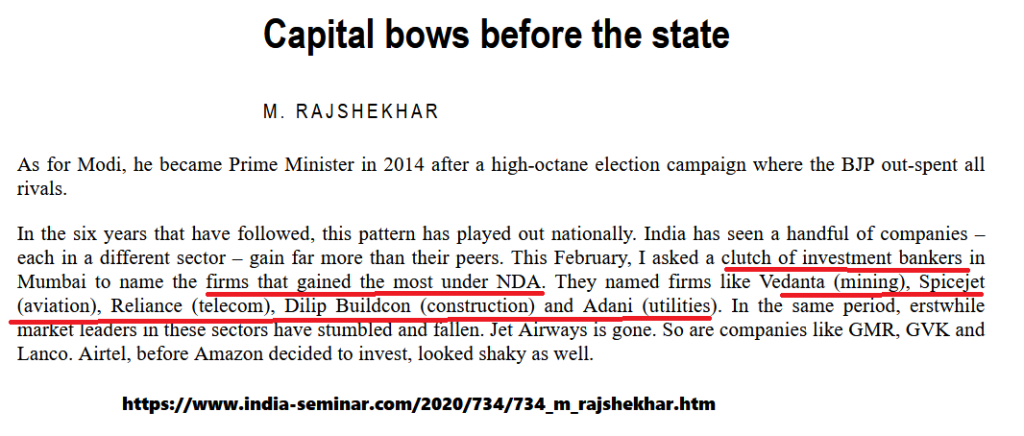Chaebol, any of the more than two dozen family-controlled conglomerates that dominate South Korea’s economy. While the founding families do not necessarily own majority stakes in the companies, the descendents of the founders often retain control by virtue of long association with the businesses. Among the largest chaebols are Samsung, LG, Hyundai, and SK Group. In the early 21st century the chaebols produced about two-thirds of South Korea’s exports and attracted the greater part of the country’s foreign capital inflows.
National Champions
In 2014, shortly after the BJP came to power, it began to be said in India Inc that the government wanted to create five or six sectoral champions. The idea, as this reporter was told, was partly to curb Reliance Industries’ outsized influence on India’s political economy.

While new to India, this approach of “National Champions” is not an untested one. Countries like China, Korea and Japan too have groomed a handful of firms to world-beating scale. In 2018, an investment banker in Mumbai listed the firms he felt were being favoured — SpiceJet in aviation; JSW in Steel; Adani in utilities; Reliance in telecom; Dilip Buildcon in construction; Kotak in banking; Vedanta in mining; etc.

In the years that followed, enjoying state support — be it PLI schemes (like photovoltaic for Adani and Ambani); or the tweaks in airport policy that helped Adani enter airports — some of these groups have expanded furiously. Vedanta contemplated a diversification into chip manufacturing. Ambani’s telecom plans surged. Not only did Adani acquire hegemonic status in sectors like ports while growing in new sectors like data centres, airports and defence, it also pipped Ambani to briefly make Gautam Adani the richest Indian.
India’s push on national champions, however, is peculiar. The country didn’t see any discussion or white paper explaining why this shift in industrial policy was desirable. Nor was there any explanation as to which firms had been chosen — and why.
Compounding matters, the government’s support to some firms comes with corresponding coercion towards others.
A newly coercive state
Most of us remember “coalgate”, as it was predictably dubbed. In the 2000s, the Atal Bihari Vajpayee government and then, the Manmohan Singh government, began handing out coal blocks for captive use — saying cheaper coal would result in cheaper electricity, making India more competitive.
What happened in practice was very different. Iron and steel firms cornered most coal blocks. Within the power sector, unknown firms trounced established rivals. Another set of firms bagged far more coal than they needed. As this reporter heard repeatedly at the time, firms with political connections — and those that bid the most in ‘shadow’ auctions — got blocks. Similar assertions were made also with Arunachal Pradesh’s abortive hydel boom. Here too, firms willing to pay bagged MoUs.

What India saw, along the way, was a non-discriminating crony capitalism. Companies with political links got what they wanted. And so did others. All that mattered was a willingness to pay.
But that is not how things have worked under Narendra Modi. Like the Congress, the BJP too has favoured a few firms. In a departure from the past, however, it has used coercion as well. Data released by the State Bank of India strongly suggests some firms may have been strong-armed through central agency raids into buying electoral bonds. The curious overlap in timing between state agencies cracking down on firms which the Adani group was trying to acquire has also been flagged.
As this reporter noted last year, “The charge now being made by businessmen and the opposition is that ruling parties are helping their preferred firms annex their peers.”
